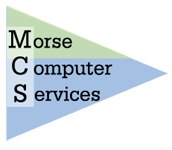About this Guide
This guide is meant to help you identify possible computer problems.
It doesn't cover all possibilities and isn't meant to
replace a qualified repair technician. Even experienced
technicians are sometimes "stumped" when diagnosing a computer problem.
How to use this guide:
1. Review the General Symptoms section first.
2. Follow the link from the General Symptoms section to the Detailed Possibilities section.
3. From the Detailed Possibilities section you can follow links for specific Component Notes.
General Symptoms
Blank Screen
Computer Keeps Rebooting
Computer Starts But Shuts Down Unexpectedly
Computer Runs Slowly
No Sound
Poor Video
Detailed Possibilities
Blank Screen
No Fan Can be Heard:
Is the electrical outlet bad?
Is the power cord bad?
Is Power Supply on Back of computer turned on?
Bad Power Supply?
Bad Motherboard?
Bad Processor?
Fan is running:
Bad Power Supply?
Bad Memory?
Bad Video Card?
Bad Motherboard?
Bad Processor?
Computer Keeps Rebooting
Virus?
Spyware?
Bad Memory?
Bad Power Supply?
Bad Motherboard?
Computer Starts But Shuts Down Unexpectedly
Virus?
Spyware?
Bad CPU Fan - Overheating?
Bad Memory?
Bad Power Supply?
Bad Motherboard?
Computer Runs Slowly
Virus?
Spyware?
Adware?
Insufficient Memory?
Bad Hard Drive?
No Sound
Are Speakers connected to correct Jack?
Bad Motherboard? (if sound is integrated into motherboard)
Is Sound Card fully inserted into slot?
Bad Sound Card?
Poor Video
Bad Monitor?
Incorrect Monitor Settings
Bad Motherboard? (if video is integrated into motherboard)
Is video card fully inserted into slot?
Bad Video Card?
Virus?
Component Notes
Viruses, Spyware, and Adware
Viruses, Spyware, and Adware can cause all kinds of insideous problems.
When people contact me about computer problems this is the first
thind I check. The first question to ask is whether your computer is
currently protected with a good firewall, anti-virus, and
anti-spware/adware. If so, and you have kept it them up to date,
then this is probably not your problem. If not, it is a possible
cause of your problem. Viruses will sometimes destroy Windows
system files so that the only solution is to back up your data, reload
Windows, and then run virus protection to get rid of the culprit.
There are lots of good commercial products out there. Here are some free alternatives that I like:
Comodo Firewall
www.comodogroup.com
avast! 4 Home Edition (free for home use)
www.avast.com
SpuCatcher Express
www.tenebril.com
Spybot Search and Destroy
www.safer-networking.org
Power Supply
A bad power supply is the most common component I replace. A lot
of manufactures skim on the power supply and it is not unusual for one
to go after a year or so (or sometimes sooner!). Power supplies
are cheap enough that it may pay to keep a good around as a spare if
you do your own repairs. Click here
to return to the top.
Memory
Adding more memory is like giving your computer a breath of fresh air.
If your computer doesn't have a lot of memory, and is running
slowly when running multiple or graphics extensive applications, then
more memory may help. Bad memory used to be a common problem, but
I see less and less bad memory modules these days. Usually when
memory is bad it shows up very quickly with blue screens and/or
unexpected reboots. However if your computer has been running
fine for some time bad memory is less likely to be your problem.
Click here to return to
the top.
CPU Fan
CPU fans do sometimes wear out or slow down over time (sometimes dust
is the problem). A bad CPU fan should be replaced immediately
because it can cause your CPU to overheat and be ruined.
Click here to return to
the top.
Hard Drive Problems
The good news is that hard drives have gotten bigger and less
expensive. The bad news is that do sometimes go, and sometimes
without much warning. The only way around this is regular
backups. If your computer is running slowly, and you have
eliminated other causes, then a bad hard drive may be the problem.
This is especially true if the drive is noisey, or worse yet
making a clicking sound. If the drive isn't noisey or old then
the culprit may be a virus that has damaged files on the drive.
Click here to return to
the top.
Bad Sound Card
Sound Cards don't usually go bad. Most of the time when somebody
says their sound isn't working it is because the speakers are plugged
into the wrong jack, or a simple software issue, like the wrong driver,
or the volume being unknowingly set to mute. I have seen a couple
cases where the integrated sound on the motherboard went bad. The
solution if the rest of the motherboard is good is to add an
inexpensive sound card. Click here
to return to the top.
Bad Motherboard
After the power supply a bad motherboard is the most common hardware
problem I see. Usually the idea is to eliminate the other less
expensive possibilities first.
Click here to return to the top.
Bad CPU
I see very few bad CPUs. I do sometimes see cases where the CPU
and motherboard are both bad, or when a bad power supply damaged the
motherboard and CPU. However these instances are rare.
Click here to return to
the top.
Bad Video Card
Video Cards do sometimes go bad, especially the "fancy" ones, usually
as a result of overheating. Usually the problem shows up after the
computer has been on for a while, when all of a sudden the video goes
"crazy". Always check your monitor by trying it with another
computer before assuming a video card is bad.
Click here to return to
the top.

office (610) 913-0859
fax (610) 913-0859
info@morsecomputer.com